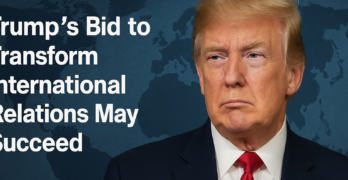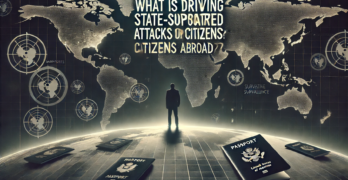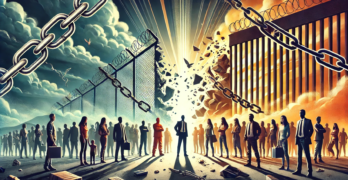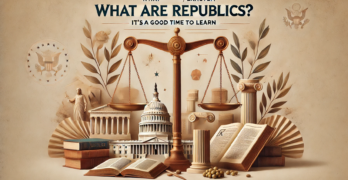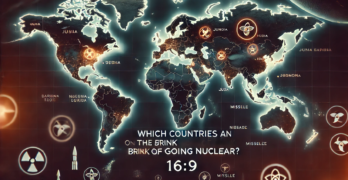As marijuana use grows, accidental intoxication in animals is becoming more common, raising questions about safety, regulation, and the need for better research.
Trump’s Bid to Transform International Relations May Succeed
Eliminating bureaucracy and abandoning the world order that the U.S. helped build may allow Trump to recalibrate foreign policy, at the cost of global stability.
Anthropology for Kids and Visual Assembly Are Reimagining Work, Education, Money, and More.
These interactive books and events encourage fresh perspectives on long-standing social systems.
The Coming Age of Border Changes?
Trump’s remarks on annexing territory and recognizing Russian and Israeli territorial gains may align with his geopolitical ambitions, but the disruption to longstanding norms of fixed borders sets a risky precedent.
The Venetian Republic Offers Powerful Lessons to an American One in Need of Repair
The Venetian Republic’s political system, emerging alongside those of other Italian city-states, was founded on collaboration and power distribution. Its rise and decline highlight the importance of adaptability in the face of shifting global political dynamics.
What Is Driving State-Sponsored Attacks on Citizens Abroad?
Kidnappings and killings of citizens by their own governments abroad are becoming increasingly common. The normalization of this trend will erode the sovereignty of all nations, as well as the safety of their citizens
Time for Truthful Narratives on Immigration
The “migrant crisis” was manufactured and is the fault of both Trump and Biden. We need to understand that the U.S. needs immigrants more than immigrants need the U.S.
What Are Republics, Exactly? It’s a Good Time to Learn
Republican ideals have evolved over millennia, shaping governance across the globe. Modern republics continue to adapt, but face challenges in upholding their foundational principles.
Which Countries Are on the Brink of Going Nuclear?
Global nuclear tensions are rising, emboldening Iran’s ambitions and putting other nuclear-threshold nations on notice. As major powers posture, countries once cautious may now reconsider their restraint.
The Growth of Malignant and Exclusionary Social Movements
The U.S. and many other societies are cycling into situations of toxic polarization today; discussion, let alone consensus, often appears impossible and the advantage goes to exclusionary social movements built on malignant rather than goodwill impulses.

